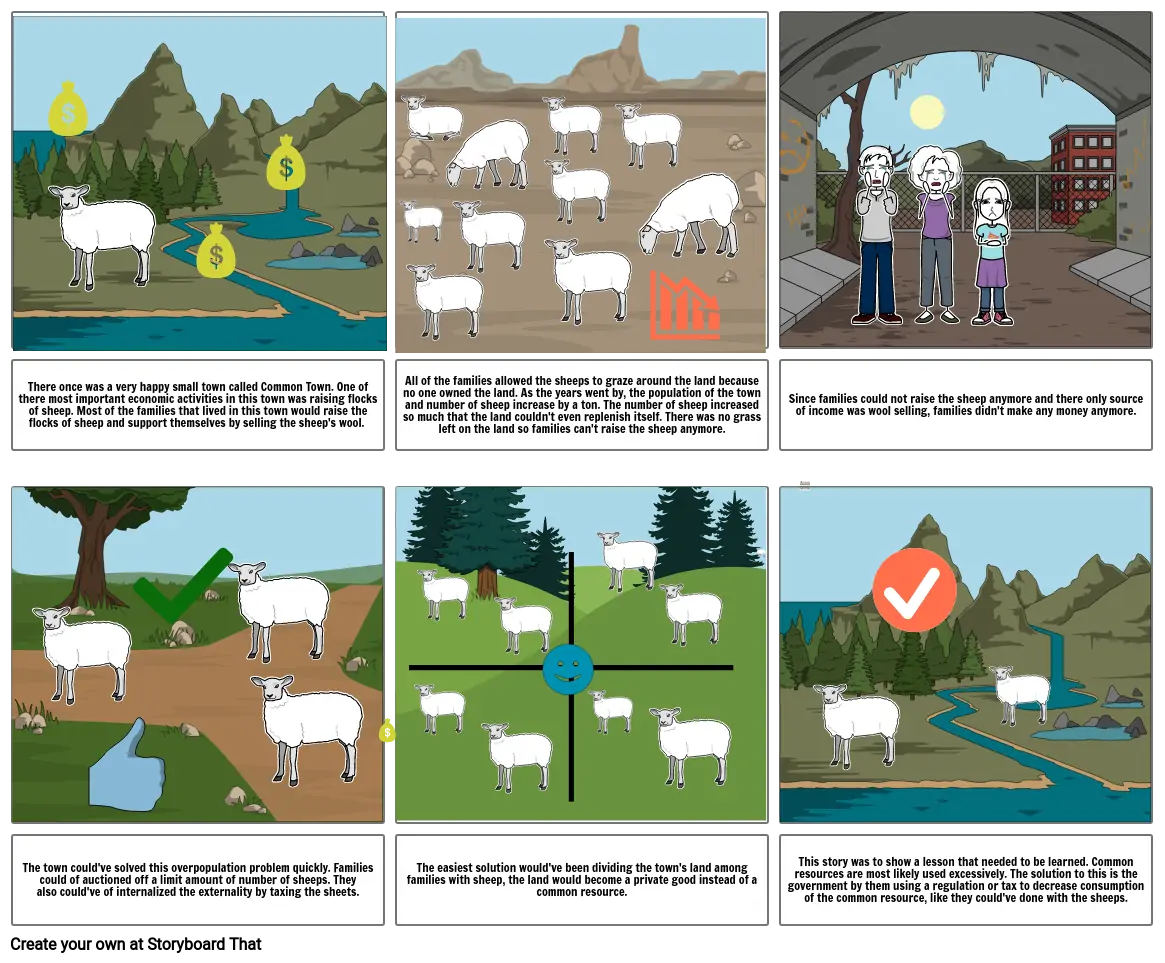
Siužetinės Linijos Tekstas
- There once was a very happy small town called Common Town. One of there most important economic activities in this town was raising flocks of sheep. Most of the families that lived in this town would raise the flocks of sheep and support themselves by selling the sheep's wool.
- All of the families allowed the sheeps to graze around the land because no one owned the land. As the years went by, the population of the town and number of sheep increase by a ton. The number of sheep increased so much that the land couldn't even replenish itself. There was no grass left on the land so families can't raise the sheep anymore.
- Since families could not raise the sheep anymore and there only source of income was wool selling, families didn't make any money anymore.
- The town could've solved this overpopulation problem quickly. Families could of auctioned off a limit amount of number of sheeps. They also could've of internalized the externality by taxing the sheets.
- The easiest solution would've been dividing the town's land among families with sheep, the land would become a private good instead of a common resource.
- This story was to show a lesson that needed to be learned. Common resources are most likely used excessively. The solution to this is the government by them using a regulation or tax to decrease consumption of the common resource, like they could've done with the sheeps.
Sukurta daugiau nei 30 milijonų siužetinių lentelių

